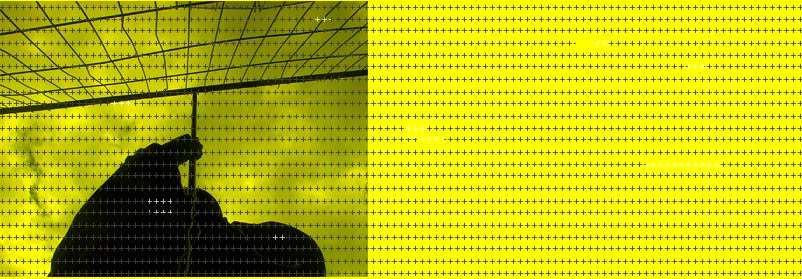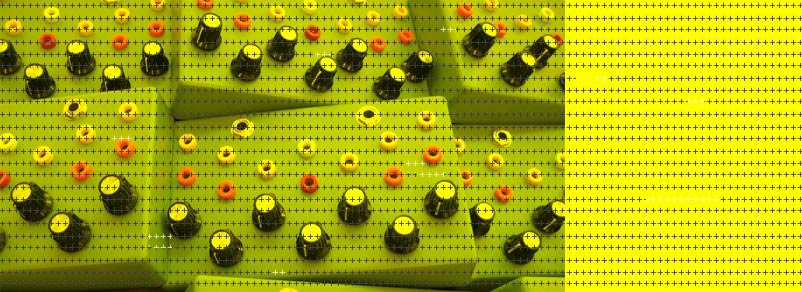workshop cluster A
World as Representation: systems and simulation.
The simulation-led workshop cluster presents constructive approaches to measurement, description and modelling of real world systems ranging across urban and ecological interventions. The world can be described by way of maps, diagrams, fiction, circuits and software. Desciptions, or representations, take on their own life as autopoetic systems, creating complex ecologies; describing becomes constructing (growing your own world). Workshops will range across the examination of spectral, electromagnetic ecologies (in city and forest), embedding of chaotic systems within analogue electronics, and novel approaches to constructive plant biology.
Workshop nodes:
1] Analog computers and numerical methods: Simulation of complex/chaotic systems in analogue circuits and software
with Jessica Rylan
At project Cyclone digital computers were, from time to time, used to verify the accuracy of results from the analog computer. In a typical
application, such as the simulation of a guided missile in three dimensions, the average runtime for a single solution on the analog computer facility was approximately one minute. The check solution by numerical methods on an IBM CPC took 75 hours to run, on an Elecom 100
it took from 60 to 130 hours to solve the same problem. [James S. Small, General-purpose electronic analog computing: 1945–1965. IEEE
Annals of the History of Computing, 15.2, 1993.]
Nowadays, digital computers have become so fast that differential equations are always solved numerically. However, analog techniques still offer a valuable immediacy and intuition in the study of the dynamics of complex systems.
In this workshop, we’ll start out by building several small analog computers. Then we’ll use the computers to model systems of increasing complexity. Finally, we’ll write code to numerically check our results.
Jessica Rylan is an Pokies artist and electronic engineer investigating the history and future of technology. Recent projects include the Little Boy Blue synthesizer, and the hybrid computer Imaginary Bridge Mk I.
2] Plant perception and patabotanical simulations: Overlap of systems simulation with plant sensing data and growth systems
with FOaM/Nik Gaffney and Dave Griffiths
FoAM’s sprawling groworld project forms an interstice between ecology, culture and technology, bringing together three forces capable of
transforming the world on human and ecological scales: design, permaculture and technology. These strands of inquiry inform and support
each other in symbiotic relationships between the post-industrial human societies and the rest of the Earth.
The workshop forms an open loop into some of the myriad aspects of groworld, including experiments in plant sensing and plant perception,
simulation of plant groth and ecological systems, game hacking and the potential for a patabotanical reinterpretation of the tiergarten.
Nik Gaffney is a systems and media researcher and a founding member of FoAM. His research focuses on biological and physical models for computation, generative systems and media rich responsive environments.
Dave Griffiths works as a self employed artist/programmer with the FoAM art laboratory and performs as part of slub – a livecoding band. He creates installations, open source software and teaches workshops around the themes of games, music and the lisp programming language.
http://fo.am/groworld
http://libarynth.org/plant_sensing

3] Data forensics and urban EM interventions
with Martin Howse/xxxxx and Julian Oliver
Data Forensics positions the electromagnetic spectrum as the archaeologist’s earth, a site rich for reading. In the course of this workshop we will undertake a series of sleuthing forays, or data digs, into the past and future data space of the Sommercamp environs, positioning GSM, wireless traffic and radio (among others) as material for investigatory research. To do this we will borrow techniques from geophysical archaeology and network forensics to expand and inform a rich exchange between electromagnetic phenomena and the signal domain.
Topics for active research and discussion within an artistic context include study of leaked data emissions and eavesdropping, digging within data sedimentations, time axis manipulation, amateur magnetometry, mapping of event intensities and attack surfaces, MITM, EM scrying, novel network topology formation.
Martin Howse operates within the fields of discourse, speculative hardware (environmental data in open physical systems), code (an examination of layers of abstraction), free software and the situational (performances and interventions).
Julian Oliver is a a New Zealand born artist, inventor, teacher and occasional writer based in Madrid, Spain. He has given numerous workshops and master classes in game-design, artistic game-development, object-oriented programming for artists, UNIX/Linux, virtual architecture, interface design, augmented reality and open source development practices worldwide.
http://1010.co.uk/org/
http://www.1010.co.uk/org/data_forensics.html
http://julianoliver.com/

The following WIKI page gives more useful information about the workshop location, dates, hours etc and will be updated constantly: http://www.dock-berlin.de/wiki/doku.php?id=start
Each workshop node is limited to 10 places, so please pre-register! This registration is a first indication or preference, cross-talk and collaboration between these nodes is encouraged.
The workshop fee is 50 Euro for the week.

